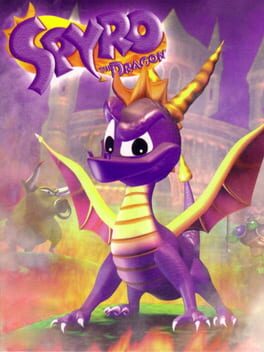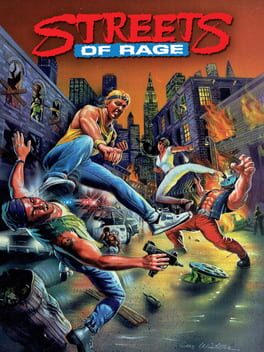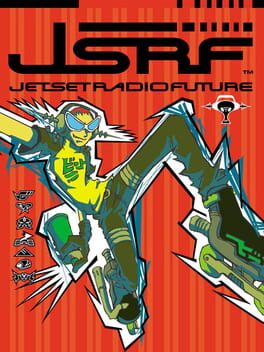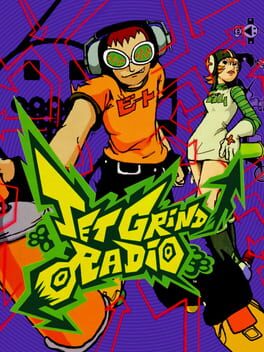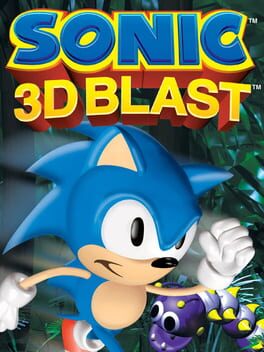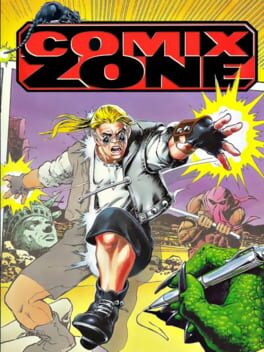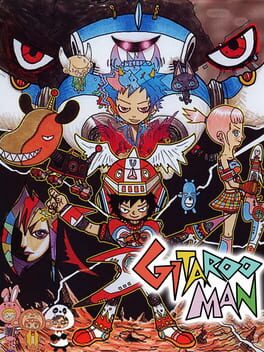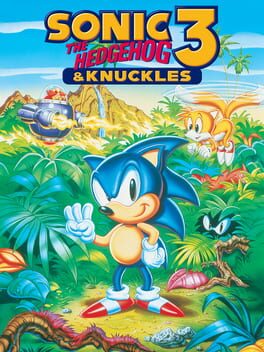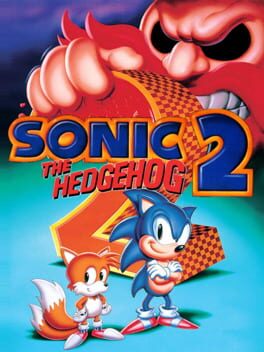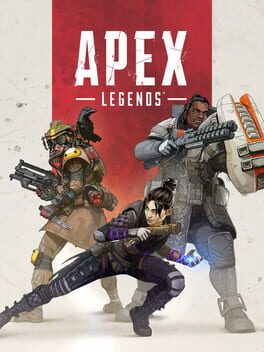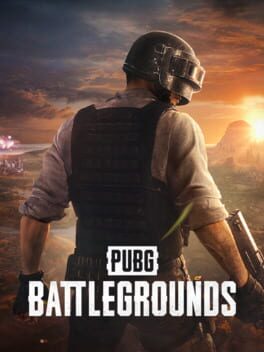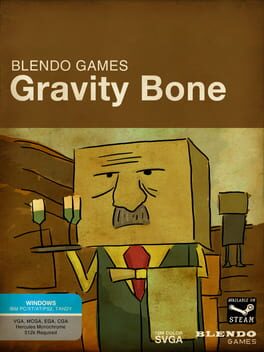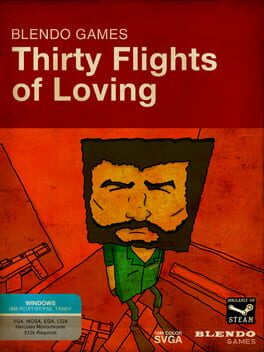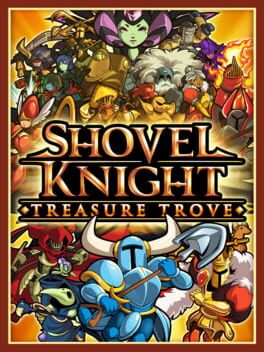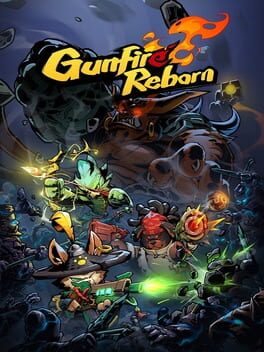1998
The Spyro games are usually described as platformers, which is a somewhat misleading label. While it's true you do a lot of jumping in these games, there's very little in the way of the usual pits or spike traps. Instead, these are games about the joy of movement, exploration, and momentum. However, unlike the later Spyro games, which rely heavily on minigames to break up the action, Spyro is a remarkably "pure" experience of charging, breathing flame, and collecting treasure. Compared to the Crash Bandicoots of the world, there's not a lot of challenge here, but there doesn't need to be: this is a enjoyable kid's game that still holds up all these years later. The sequels are better, though.
1991
2002
Better than Halo.
Okay, that's a dumb joke, even though I actually believe it. When I bought my neighbor's original Xbox from him around 2006, this was one of the games I was dying to play, along with Butcher Bay and Breakdown. As a whole, this game takes everything I loved about JGR and elevates it. It isn't flawless, don't get me wrong - the controls take some getting used to, and the soundtrack doesn't necessarily reach the highs of the original - but overall, JSRF is the game that JGR should have been.
Okay, that's a dumb joke, even though I actually believe it. When I bought my neighbor's original Xbox from him around 2006, this was one of the games I was dying to play, along with Butcher Bay and Breakdown. As a whole, this game takes everything I loved about JGR and elevates it. It isn't flawless, don't get me wrong - the controls take some getting used to, and the soundtrack doesn't necessarily reach the highs of the original - but overall, JSRF is the game that JGR should have been.
2000
This might produce a flood of negative feedback, but I have to be honest: this game is the Comix Zone of the Dreamcast. To interpolate somebody else's Comix Zone review, this game gets an A for aesthetics, an A+ for concept, a A for its soundtrack, a C for general execution, and a big fat F for controls - which is unfortunately the most important part of this kind of game. I don't think it's a coincidence that JSRF is essentially just a remake of this game in a slightly different setting: they knew they could do it better, and they did. Definitely worth checking out for the historical value, but if you want to play a good video game, JSRF is the way to go.
1996
In retrospect, it's amazing that they managed to get this running on the Genesis, but isometric platformers are a dubious idea at best, and controlling this kind of game with a D-pad is...well, let's just say that it feels like a 3D Sonic game in all the wrong ways. Like most notable Genesis games, I beat it back in the day, but that doesn't mean you should. Just look up the OST on YouTube instead, it bangs.
1995
When I first played Comix Zone as a 7-year-old, between its novel premise, grunge-inspired soundtrack, and electric-tailed rat, I thought it was the apex of '90s video gaming. These days, while I don't regard it as a classic or anything, I do think that this game tends to get a bum rap from people who pick it up, die to the first or second enemy, and then go on Twitter to proclaim that it sucks. While it's certainly a punishing experience for newbies - there are no continues or save/password system, which was a rarity even for the retro era - if you actually take the time to figure out what you're doing, this isn't a particularly challenging game, and you can easily beat it in less than an hour. I don't think anybody should go out of their way to play Comix Zone if they're otherwise inclined, but as a whole, this is a remarkable aesthetic achievement that deserves a little more respect than it gets.
2001
One of the better "weird rhythm games" of the pre-Guitar Hero era. I love the control scheme, and it has a few bangers that I still hum every now and then (Tainted Lovers is a personal favorite), but the soundtrack is a bit inconsistent, and the story is complete nonsense. Compared to Parappa, this is a world-beater, but we've come a long way in the past 20 years, so I can really only recommend it as a curiosity for those interested in the origins of the genre.
Head and shoulders above every other classic entry in the Sonic series in both quality and scale, this is one of the defining games of the 16-bit era. S3&K improves on virtually every area of the Sonic experience (even the Special Stages don't suck anymore!), and its level design is much more consistent and enjoyable than its immediate predecessors. As a whole, it's still not going to convert those who don't enjoy the pure kinetic fun of Sonic-style platformers, but if you're at all interested in a game where every button is jump, this is about as good as they get.
1992
I remember when I first started using the internet, I discovered that a lot of people view this as the best game in the series, and that definitely surprised me. Though I thoroughly enjoyed Sonic 2 as a kid, I think a lot of Sega fans remember it with rose-colored glasses - there are several dud Zones here, and the smooth transition between the eye-popping "fast" loop-de-loops and the "slow" precision platforming still isn't quite there. The spin dash is a much-needed improvement, however. Still one of my favorite Genesis games to revisit, but there are much better entries in the 2D Sonic canon these days.
2019
This is the best battle royale shooter by a comfortable margin, but it turns out that not even the best battle royale is good enough to keep me interested for more than a few weeks. Excellent gamefeel and movement, but some of the newer characters feel gimmicky, and I just don't have the time or effort to learn a new meta every two months or whatever. Sorry Apex, it's not you, it's me. But it's also you, a little bit.
2017
I had a pretty good time with this game back in the day with a few friends, but it was quickly outclassed by its competitors, particularly Apex. Probably the jankiest game to ever achieve its level of success, which is a dubious honor of a sort, I suppose, but that's the main reason I stopped playing it.
2008
Like its companion piece Thirty Flights of Loving, this is a very pleasant micro-game that lingers in the imagination. I think I prefer Gravity Bone, though, because it's slightly more inventive and a bit less pretentious. Plus, it's free. If you like this sort of thing, check it out, because it's better than 95% of the popular indie narrative games you paid $15 for.
This is four of the best indie platformers ever in one reasonably-priced package. Playing them back-to-back might induce some fatigue, but the mechanics of the individual games are so distinct that they each manage to stand out in their own way. If you like 8-bit platformers in the slightest, this is a must-buy.
2020
